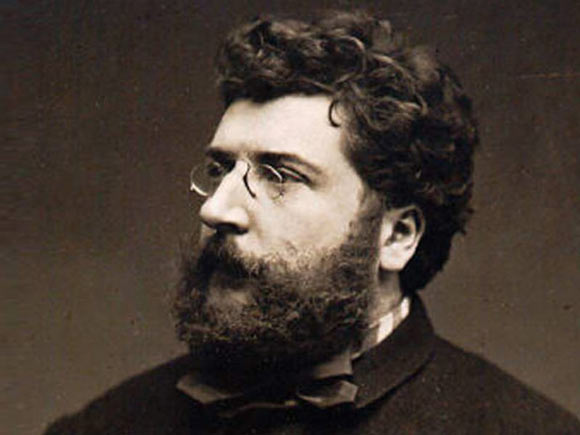
Georges Bizet was a French Composer of the Romantic Era. An 1857 Prix De Rome winner, Bizet’s music was greatly appreciated after his death.
Georges Bizet was born on October 25, 1838 in Paris. Bizet’s father was an amateur musician, who had one published song to his name, while Bizet’s mother was an esteemed pianist. Bizet’s maternal aunt was no less than a musical genius; she had been teaching at the Conservatoire de Paris at the tender age of thirteen. When Bizet was a child, he was given piano lessons by his mother, who would later on also train him in music theory. Bizet also used to eavesdropped on his father’s music lessons and would display a natural talent in singing and memorization. Bizet’s parents were convinced that their child was good enough to excel at the Conservatoire de Paris while he was only nine. Bizet was interviewed by the horn virtuoso Joseph Miefred, who helped the young Bizet enroll at the institute despite the minimum age requirement (a child had to be ten years old to be enrolled at the Conservatoire, however, in Bizet’s case an exception was made). Inside six months of enrollment, Bizet was already turning heads. He won the first prize in solfege, a feat which had greatly impressed the French Pianist Pierre-Joseph-Guillaume Zimmermann. After the win, Bizet was largely trained by Zimmermann, who gave Bizet various lessons in fugue and counterpoint. He also studied under the French Pianist Antoine Marmontel, and under his tuition, Bizet won the second prize for piano in 1851, and the first prize in piano in 1852.
Compositions from Bizet’s time at the conservatory included two sopranos, his songs “Petite Marguerite” and “La Rose et L’abeille”. He also transcribed two of Charles Gounod’s works for the piano, these included “La none sanglante” and his Symphony in D Major. At the age of seventeen, Bizet also wrote his own full scale Symphony in C Major. Bizet competed for the prestigious Prix de Rome in both 1856 and in 1857. The award was not given in 1856 due to unsatisfactory entrees, however, in 1857, Bizet would win the award. He chose to submit his cantata for Amedee Burion’s “Clovis et Clotilde”. Bizet spent the next five years of his life reaping the benefits of the grants that he received due to the award. Of these five years, he spent the first two in Rome, the third in Italy, and the final two in Paris.
Despite his brilliant composing skills, Bizet had relatively little success during his life. It was said that his compositions were largely ignored because of the main opera theatres preferring the classical repertoire to that of the works of the romantic era. Nonetheless, Bizet’s works would garner massive popularity towards the end of his life, and especially after his death. Two of his opera’s, “Les pecheurs de perles” and “La jolie fille de Perth” were slow in gaining appreciation; however, they would go on to become extremely popular. There were obvious exceptions to this rule, for example, his opera “Djamileh” had an extremely successful premiere. His last opera, “Carmen”, had major production difficulties and it left Bizet confused about its future. However, it would prove to be extremely successful after his death.
Georges Bizet died on June 3, 1875 of a heart attack. He died as a Chevalier of the Legion of Honor.